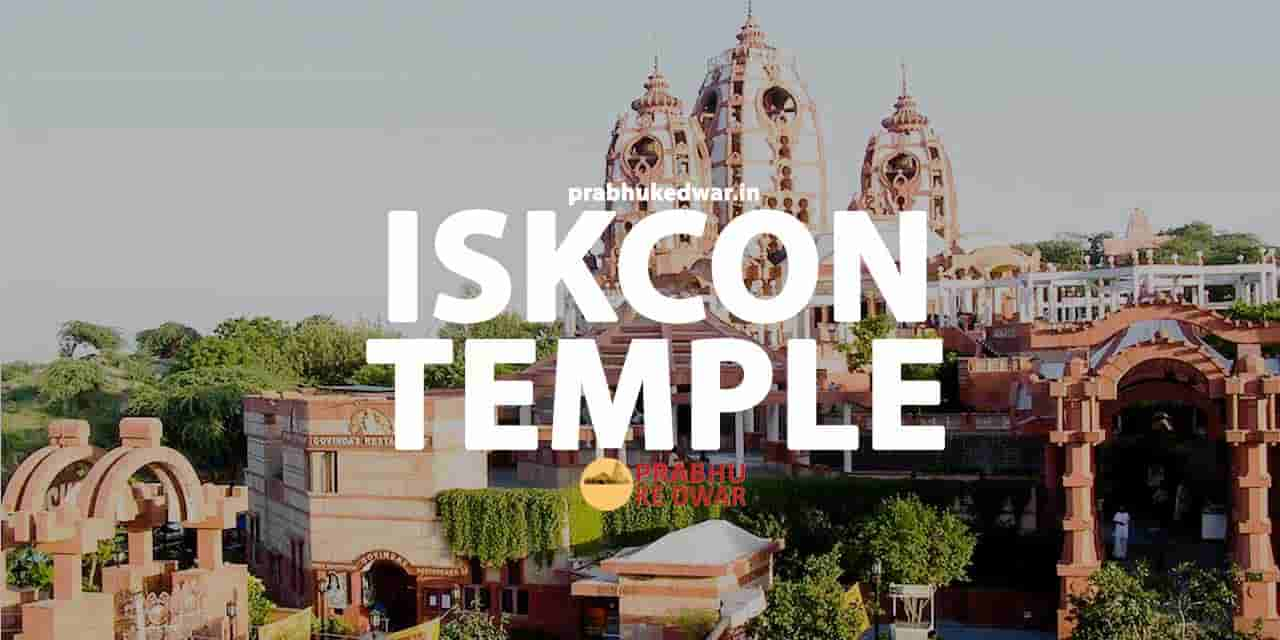Introduction
The International Society for Krishna Consciousness (ISKCON), commonly known as the Hare Krishna movement, is a prominent religious organization. Founded in 1966 by A.C. Bhaktivedanta Swami Prabhupada, ISKCON has grown into a global spiritual movement with numerous temples, centers, and followers worldwide. ISKCON temples are not just places of worship; they are cultural and educational hubs that promote the teachings of Lord Krishna and the Bhagavad Gita.
History of ISKCON
Founding of ISKCON
ISKCON was founded in 1966 in New York City by A.C. Bhaktivedanta Swami Prabhupada, who aimed to spread the teachings of Lord Krishna across the world. His mission was to fulfill the prophecy of Chaitanya Mahaprabhu, who predicted that the holy names of Krishna would be chanted in every town and village.
Early Growth and Expansion
After its founding, ISKCON quickly expanded, establishing temples and communities in major cities around the world. The movement attracted a diverse group of followers, including many from Western countries. By the 1970s, ISKCON had become a well-known spiritual organization with a significant cultural impact.
Philosophy and Teachings
Core Beliefs
The core beliefs of ISKCON are based on the teachings of the Bhagavad Gita and the Srimad Bhagavatam. Devotees believe in the supremacy of Lord Krishna and aim to develop a personal relationship with Him through devotion, chanting, and service.
Key Texts and Scriptures
The Bhagavad Gita and the Srimad Bhagavatam are the principal scriptures of ISKCON. These texts provide guidance on how to live a life of devotion and righteousness, emphasizing the importance of loving and serving Krishna.
Architectural Style
Traditional Elements
ISKCON temples often feature traditional Vedic architecture, with intricate carvings, domes, and spires. These elements are designed to create a spiritual atmosphere that inspires devotion and reverence.
Modern Influences
In addition to traditional designs, many ISKCON temples incorporate modern architectural elements. This blend of old and new reflects the organization's global presence and contemporary relevance.
Prominent ISKCON Temples Worldwide
ISKCON Temple, Vrindavan
One of the most famous ISKCON temples is located in Vrindavan, India, a town with deep spiritual significance in the Krishna tradition. This temple attracts thousands of pilgrims and visitors every year.
ISKCON Temple, Bangalore
The ISKCON temple in Bangalore is a striking example of modern temple architecture, featuring a blend of traditional and contemporary styles. It is one of the largest ISKCON temples in the world.
ISKCON Temple, Mayapur
Located in West Bengal, Mayapur is considered the spiritual headquarters of ISKCON. The temple here is part of a larger complex that includes educational and cultural facilities.
Other Notable Temples
ISKCON has established notable temples in cities like Mumbai, New Delhi, and London, each contributing uniquely to the movement's mission.
Rituals and Practices
Daily Worship
Daily worship at ISKCON temples includes rituals such as Arati (offering of light), Bhajans (devotional songs), and the chanting of the Hare Krishna mantra. These practices are integral to the devotional life of ISKCON followers.
Festivals and Celebrations
ISKCON temples celebrate numerous festivals throughout the year, with Janmashtami (the birth of Krishna) being one of the most important. These festivals often feature elaborate rituals, feasts, and cultural programs.
Cultural Impact
Influence on Arts and Music
ISKCON has significantly influenced arts and music, particularly through its use of traditional Indian instruments and devotional songs. The Hare Krishna mantra has become a recognizable chant worldwide.
Contributions to Vegetarianism
ISKCON promotes a vegetarian lifestyle as part of its philosophy of non-violence and compassion. The movement has been influential in spreading awareness about vegetarianism and healthy eating.
Community Services and Outreach
Food Distribution Programs
One of ISKCON's most well-known outreach programs is its food distribution initiative, which provides free vegetarian meals to millions of people globally. The "Food for Life" program is a key aspect of ISKCON's humanitarian efforts.
Educational Initiatives
ISKCON also runs numerous educational programs, including schools, colleges, and courses on Vedic studies. These initiatives aim to educate people about the teachings of Krishna and promote spiritual growth.
Tourism and Pilgrimage
Popular Destinations
ISKCON temples are popular pilgrimage destinations for devotees and tourists alike. Places like Vrindavan and Mayapur attract visitors from around the world seeking spiritual solace and cultural enrichment.
Visitor Experience
Visitors to ISKCON temples often describe their experience as serene and uplifting. The temples provide a peaceful environment for meditation, prayer, and community interaction.
Challenges and Controversies
Internal Issues
Like any large organization, ISKCON has faced internal challenges, including leadership disputes and governance issues. These challenges have sometimes affected the organization's stability and growth.
External Criticisms
ISKCON has also faced external criticisms related to its practices and beliefs. However, the organization has worked to address these concerns and improve its public image through transparency and outreach.
ISKCON in the Modern Era
Adaptations and Innovations
In the modern era, ISKCON has embraced technology and innovation to spread its message. Online platforms, social media, and digital publications have become vital tools for reaching a global audience.
Global Influence
ISKCON's global influence continues to grow, with new temples and centers opening regularly. The movement's message of devotion and spiritual enlightenment resonates with people from diverse backgrounds.
Notable Personalities
Founder: A.C. Bhaktivedanta Swami Prabhupada
A.C. Bhaktivedanta Swami Prabhupada, the founder of ISKCON, is revered by followers for his dedication to spreading Krishna consciousness. His teachings and writings remain central to the movement.
Other Key Figures
Other notable figures in ISKCON include disciples of Prabhupada who have continued his mission and contributed to the organization's growth and development.
Educational Institutions
Gurukulas and Schools
ISKCON operates several gurukulas (traditional Vedic schools) and modern educational institutions that provide a balanced education rooted in spiritual values.
Higher Education Centers
ISKCON's higher education centers offer advanced studies in Vedic literature, philosophy, and theology, preparing students for leadership roles within the organization.
Publications and Media
Books and Magazines
ISKCON has a rich tradition of publishing books and magazines that explore various aspects of Krishna consciousness. These publications are widely read and respected.
Online Presence
ISKCON's online presence includes websites, social media channels, and digital libraries that provide resources for devotees and the general public. This digital outreach helps the organization stay connected with its global audience.
Future Prospects
Upcoming Projects
ISKCON has several upcoming projects aimed at expanding its reach and impact. These include new temples, community centers, and cultural initiatives.
Vision for Growth
The vision for ISKCON's future includes promoting global peace and harmony through the teachings of Krishna. The organization aims to continue growing and inspiring people worldwide.
Conclusion
ISKCON temples are more than just places of worship; they are vibrant centers of spiritual, cultural, and educational activities. The movement's emphasis on devotion, community service, and outreach has made it a significant force in the spiritual landscape. As ISKCON continues to grow and evolve, it remains dedicated to spreading the teachings of Krishna and fostering a global community of devotees.
FAQs
What is the main purpose of ISKCON temples? ISKCON temples serve as centers for worship, education, and community service, promoting the teachings of Lord Krishna.
How can one become a member of ISKCON? Becoming a member of ISKCON involves regular participation in temple activities, chanting the Hare Krishna mantra, and following the principles of Krishna consciousness.
Are ISKCON temples open to non-Hindus? Yes, ISKCON temples welcome people of all backgrounds to learn about Krishna consciousness and participate in temple activities.
What are the main festivals celebrated at ISKCON temples? Major festivals include Janmashtami, Radhashtami, Gaura Purnima, and Diwali, celebrated with great enthusiasm and devotion.
How does ISKCON contribute to society? ISKCON contributes through various community service programs, including food distribution, educational initiatives, and cultural preservation.




